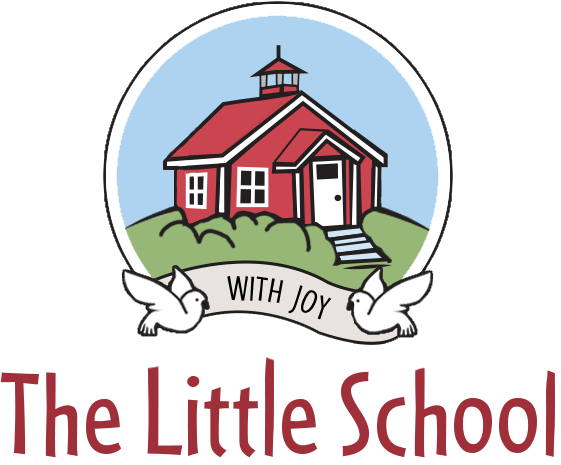

Natural Play is perhaps the most basic and most profound of the 5 Big Ideas, because it is what the children bring to The Little School themselves. It is also one of the hardest to define. Why? Because it is born in the moment. Because it leaps forth from the children. Because it involves the entire developing child. Because it is innate to humans. Because it can be different in every moment of the day.
Defining Play
People always want to begin by defining play, but playworker and play theorist Gordon Sturrock says, “Trying to define play is like trying to define love. You can’t do it. It’s too big for that.” (Wilson, Penny: Playwork Primer, 2010)
So, we let the children define the space, and time, and the moments that we set specifically for play.
We let children define Play.
We let children define Play.
We let children define Play
And we in turn facilitate play.
It is our role to… provide a play environment in which children will laugh and cry; where they can explore and experiment; where they can create and destroy; where they can achieve; where they can feel excited and elated; where they may sometimes be bored and frustrated, and may sometimes hurt themselves; where they can get help, support, and encouragement from others when they require it; where they can grow to be independent and self-reliant; where they can learn—in the widest possible sense—about themselves, about others, and about the world. (Wilson)

Effects of Natural Play
Here are some beautiful reasons why natural play is important and emphasized at The Little School...
- Contact with the natural world can significantly reduce symptoms of attention deficit disorder in children as young as five years old. (Kuo and Taylor, 2004)
- Access to green spaces for play, and even a view of green settings, enhances peace, self-control and self-discipline within inner city youth, and particularly in girls. (Taylor, Kuo and Sullivan, 2001)
- Nature is important to children’s development in every major way—intellectually, emotionally, socially, spiritually and physically. (Kellert, 2005)
- Play in nature is especially important for developing capacities for creativity, problem solving, and intellectual development. (Kellert, 2005)
- Children will be smarter, better able to get along with others, healthier and happier when they have regular opportunities for free and unstructured play in the out-of-doors. (Burdette and Whitaker, 2005)
- The greener a child’s everyday environment, the more manageable are their symptoms of attention-deficit disorder. (Taylor, Kuo and Sullivan, 2001)
- Green plants and vistas reduce stress among highly stressed children in rural areas, with the results the most significant where there are the greatest number of plants, green views and access to natural play areas. (Wells and Evans, 2003)
- Proximity to, views of, and daily exposure to natural settings increases children’s ability to focus and enhances cognitive abilities. (Wells, 2000)
- Positive direct experience in the out-of-doors and being taken outdoors by someone close to the child—a parent, grandparent, or other trusted guardian—are the two factors that most contribute to individuals choosing to take action to benefit the environment as adults. (Chawla, 2006)
- Children who experience school grounds with diverse natural settings are more physically active, more aware of nutrition, more civil to one another and more creative. (Bell and Dyment, 2006)
- Outdoor experiences for teens result in enhanced self-esteem, self-confidence, independence, autonomy and initiative. These positive results persist through many years. (Kellert with Derr, 1998)
- Studies in the US show that schools that use outdoor classrooms and other forms of nature-based experiential education support significant student gains in social studies, science, language arts, and math. Students in outdoor science programs improved their science testing scores by 27%. (American Institutes for Research, 2005)
Children & Nature Network.
Annotated Bibliographies of Research and Studies, Volumes 1 and 2 (2007)

“Children’s play is not just kids’ stuff. Children’s play is rather the stuff of most future inventions.” – Fred Rogers
“Think about watching your children play. They become so engrossed in their actions, you can’t get them to notice you or the call to supper." - Becky A. Bailey








